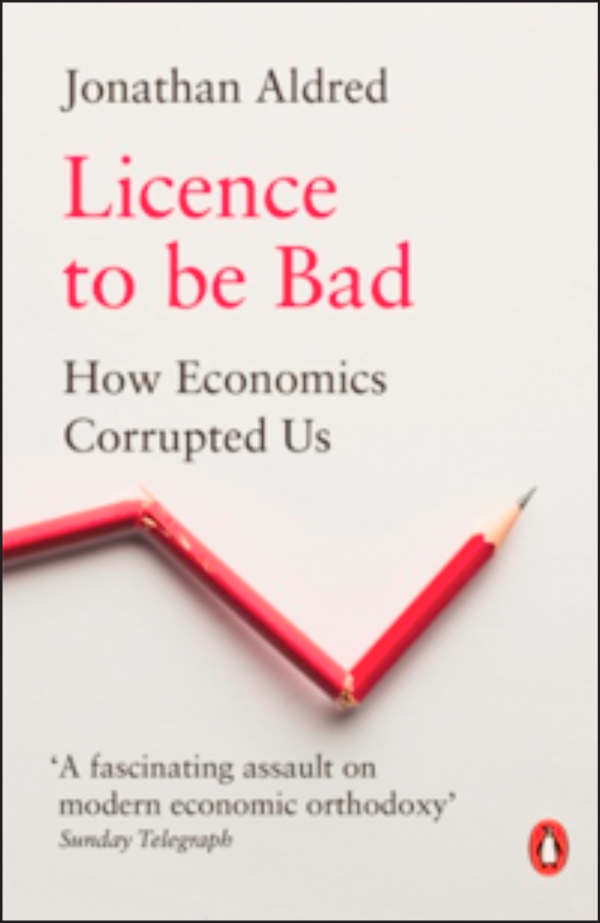
Examining the flaws of the neoliberal model
There are, generally speaking, two camps on the subject of how to define economics. The first sees the discipline as defined by its approach to measuring the world: methodological individualism, instrumental rationality and mathematical modelling. The second believes it is defined by its subject matter: how goods and services are produced and distributed. In this book, Cambridge academic Jonathan Aldred has the first camp in mind. “Many economists proudly see themselves as unsentimental, straight talking and brutally honest,” he writes. “For decades, the default starting point of mainstream economists has been to assume that selfishness is the natural, dominant determinant of human behaviour.” It was not always so, he adds. Adam Smith, whose book The Wealth of Nations is hailed as the founding text of economics, also wrote The Theory of Moral Sentiments, which sought to ground ethics in our human sympathy for one another. This means modern economics that claims to be a return to traditional “classical” theories is anything but, Aldred argues. The subject is timely. After a long period during which economics sought to present itself as a neutral science, interest is rising in what it has to say about morality and how economic factors affect our behaviour. The current incarnation of Britain’s Labour party, for example, takes inspiration from Margaret Thatcher’s dictum that “economics are the method; the object is to change the heart and soul”. They look to the work of Karl Polanyi, a 20th century Austrian economist, who examined how the spread of capitalism in the early 19th century clashed with existing ideas of solidarity and fairness and inspired a “counter movement” to try to preserve these institutions. Unfortunately, there is little of this here. The book works best when you substitute the word “economics” in its provocative subtitle for “neoliberalism” — although the author dislikes the term, which he calls vague. It is really an account of how a group of right-wing economists persuaded policymakers, particularly in the governments of Thatcher in the UK and Ronald Reagan in the US, to adopt their ideas. He gives no evidence that these theories had an influence on general standards of behaviour. Aldred focuses on microeconomic theories of behaviour popularised by researchers often connected to the Chicago school and the Rand Corporation. These include the macroeconomist Milton Friedman, who argued corporations only had a duty to maximise profits; Gary Becker, who applied the tools of rational optimisation to areas such as the family and discrimination; and the game theory pioneer John Nash. Readers familiar with the topic will find little new. Aldred opens the book with an account of the Austrian economist Friedrich Hayek and the creation of the Mont Pelerin Society, which aimed to counter government invention in the economy. He moves on to the creation of the Institute of Economic Affairs, an economically liberal think-tank, which would introduce Hayek to Thatcher. In a later chapter, the story of the origins of the Laffer curve, as a sketch on a napkin, makes an appearance. All have been told at length elsewhere. When Aldred has a particularly egregious set of assumptions between his teeth the book can be stimulating. He makes a persuasive argument against the view that we can, and should, pay people to do what we want. Money can crowd out other motives and payments work best when they flatter our self-image. Overall, the book already feels dated. Most of the thinkers Aldred focuses on are dead and the economics profession is moving on. Politics has too: many date the end of the neoliberal era to the 2008 financial crisis, or the Brexit referendum and the election of Donald Trump in 2016. Economists are not in charge any more, if they ever were. Among academics, the pendulum is swinging back to those who define the discipline by subject matter rather than an assumption of rational self-interested agents. Ideas that were consigned to the margins are finding their way back into the mainstream. Aldred devotes little space to the flaws in recent trends, such as the increasing focus on data rather than models. Economics may redeem itself yet.
Available at Timbooktoo tel 4494345





